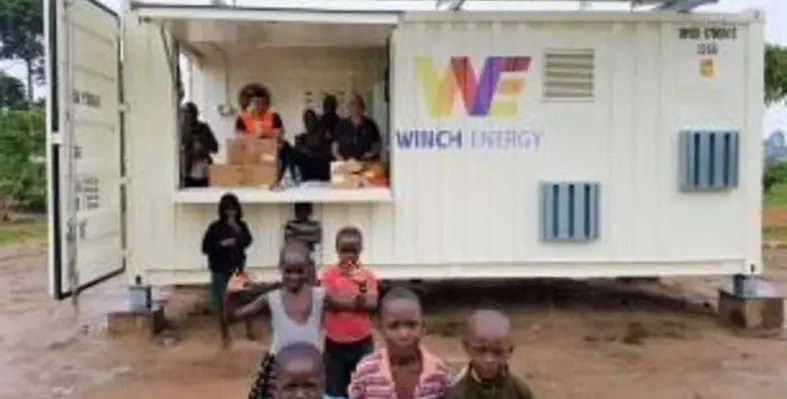Off-grid utilities provider Winch Energy has unveiled the Winch Clinic, a mobile health facility fully powered by renewable energy, aiming to prevent vulnerable populations across the developing world from accessing healthcare
The modular building provides healthcare to urban, rural and remote communities. The 20-40 foot containers can be configured to include four or eight full-service rooms and easily expanded as demand increases, with between 24 and 48 beds. Depending on requirements, the rooms can be arranged to serve as a dispensary, consulting room, surgery room, Intensive Care Unit (ICU), examination room or an office for doctors and other healthcare professionals. The Clinic is scalable to requirements.
Unreliable electricity access leads to the spoiling of medicine and vaccines as well as the inability to use equipment and interruptions to medical procedures. The Winch Clinic uses, as its base, the Winch Remote Power Unit (RPU), which have been successfully deployed in five African countries and operating for over four years. The units have an average design life of 35 years and are successfully and reliably operating in the most remote and harsh environments in Africa.
Equipped with photovoltaic (PV) solar panels and an integrated battery generator, the Winch Clinic is set to run 24/7, supporting air conditioning, ventilation and air filtering, lighting and water pumping and purification facilities, which are essential for hygiene, as well as ventilators and other specialist devices. Power supply options are available, enabling the clinic to power medical equipment and other appliances, VSAT Internet connections, a drone charging platform for the delivery of supplies and lodgings for medical and administrative staff required to provide care to patients.
Nicholas Wrigley, CEO of Winch Energy Ltd, commented, “Healthcare is fundamental for the communities to develop and thrive, yet too often people are unable to access the services they need due to lack of infrastructure. We have designed the Winch Clinic to be self-contained, cost-effective and powered by clean, renewable energy so it can be swiftly installed exactly where people have the greatest need – particularly important for developing communities in Africa, Asia, Latin and South America.”














